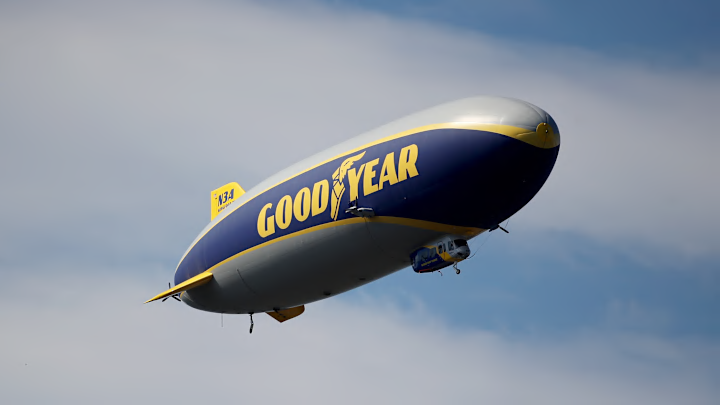When the blimp debuted in 1852, it was hailed as the future of travel. The airships used massive, gas-filled balloons to float above the ground and engines to travel great distances, regardless of which way the wind was blowing. Within decades, they were being used for passenger flights and military operations.
The aircraft are in a much different position today. According to Reader's Digest, there are only 25 blimps left in existence as of 2022, and roughly only half of them are in use. Instead of luxurious trips around the world, today's dirigibles are primarily used for advertising and aerial photography. So how did the vehicle go from a futuristic innovation to a rare curio?
The blimp's greatest downfall was inefficiency. The majority of its bulk is reserved for helium, leaving limited space for cargo and passengers. It also transports its contents at a relatively slow pace. According to Guinness World Records, the rigid zeppelins built by the U.S. and Germany in the 1930s reached top speeds of 87 mph. For comparison, airplanes had already passed the 200 mph mark by this time.
Safety was another concern. Many airships used in the early 20th century were filled with highly combustible hydrogen gas rather than helium, which made any accident potentially disastrous. The world witnessed this when the Hindenburg crashed and exploded in New Jersey on May 6, 1937, hastening the technology's decline.
Though airplanes ultimately pushed blimps out of military and commercial spaces, a handful of them can still be spotted in the sky today. The aircraft may be impractical for long flights, but they're good at floating in one area for extended periods, which is why they're still used by companies like Goodyear for advertising and for filming sporting events.
But even in this context, dirigibles are becoming rarer. Drones can capture the same aerial shots as blimps, and they don't require 300,000 cubic feet of expensive helium to do so. The number of airships in use will likely shrink even further in the coming years, which means the blimps that do stick around are even more likely to be mistaken for UFOs.
[h/t Reader's Digest]
